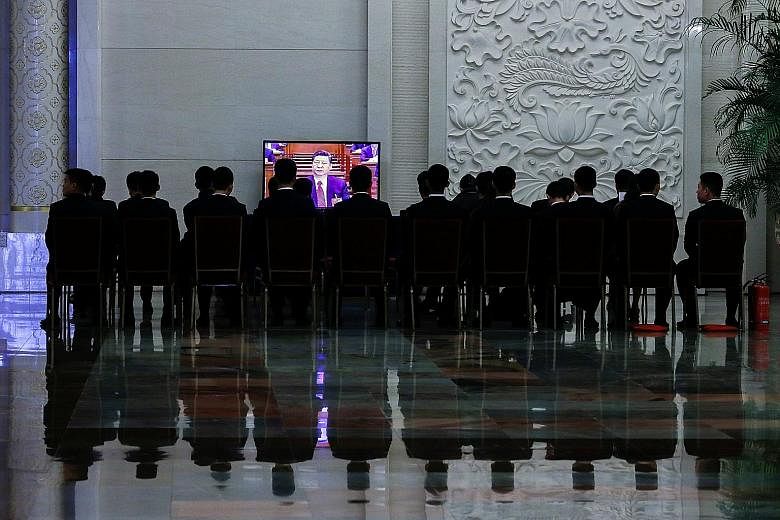China has proposed a sweeping reorganisation of its State Council, or Cabinet, to better manage its huge economy, improve its ecological environment and prepare the country and its people for the future.
This reshuffle is also very much a response to changing situations, as seen in the renaming of the National Health and Family Planning Commission to just the National Health Commission.
The agency's focus had been to implement the controversial one-child policy started in the early 1980s to slow down population growth and speed up economic development.
As China's population growth has slowed in the ensuing decades and ageing is becoming an issue, the country has allowed two-child families since 2016.
But more change is on the way - this time targeting the ageing population. About a quarter of the population in China will be 60 years or older by 2030.
The reconfigured National Health Commission will "actively respond to the ageing of the population and accelerate the development of old-age businesses and industries".
The reshuffle proposal is part of a set of institutional reforms involving the state and the Chinese Communist Party announced last month by the party's central committee.
-
8
Number of ministries to be cut in the move to improve efficiency and reduce overlaps.
7
Number of non-ministerial agencies to be eliminated.
The move to improve efficiency and reduce overlaps will cut the number of ministries by eight to 26, and eliminate seven non-ministerial agencies.
State Councillor Wang Yong, who read the proposal at yesterday's plenary meeting of the ongoing annual parliamentary session, said the restructuring was to "strengthen the government's functions of economic management, market supervision, social management, public service and ecological and environmental protection".
To better manage China's natural resources and tackle serious environmental problems arising from its rapid economic growth, two new ministries will be set up. The Ministry of Natural Resources and Ministry of Ecological Environment will bring together units scattered over various agencies.
Another key proposal is the merging of the banking and insurance regulators to reduce financial risks.
Such risks have been identified by the government as one of its three "critical battles" - together with poverty and pollution.
China's mounting debt has led to a recent warning from the International Monetary Fund that it could trigger a global financial crisis.
Other reforms include setting up a Ministry of Emergency Management to improve response to disasters such as floods, fires and earthquakes by bringing together the response units in different agencies; a State Grains and Reserves Administration to manage strategic and emergency-aid goods such as grain, cotton and sugar; and a Veterans Affairs Ministry to take care of retired soldiers.
Apart from the State Council reshuffle plan, the nearly 3,000 parliamentary delegates also heard the third reading of the proposed National Supervisory Law that will allow for the setting up of a powerful anti-corruption agency.
Such a law "gives legal basis to solving the problems of corruption and will enjoy the support of the Chinese people", according to Mr Wang Jun, a delegate from Heilongjiang province.
As for the State Council reshuffle, he said it was "scientific progress" and he hoped it would make China wealthier and stronger, and allow the people to "benefit from the fruits of opening up and reform, and get a share of the dividends".

